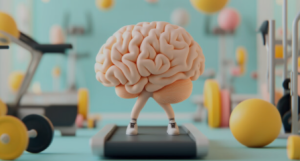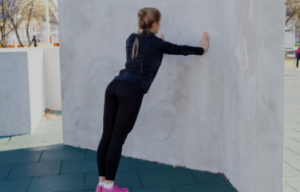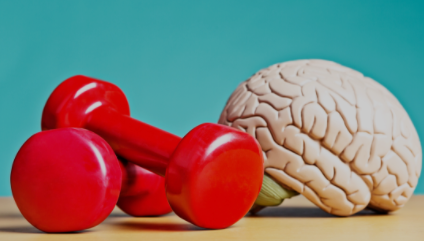
Morning exercise can significantly benefit brain health by boosting cognitive function, improving focus, concentration, and memory, while also potentially reducing anxiety and depression symptoms. Exercise increases blood flow to the brain and stimulates the release of neurotransmitters like norepinephrine and dopamine, which are crucial for cognitive processes. Exercise can lead to a more focused and mentally clear state, helping you start the day with better concentration.
Even a single workout can improve your ability to focus and shift attention. Morning exercise helps you avoid distractions and establish a healthier mindset. Regular morning exercise can enhance memory and thinking skills. It may increase the size of brain regions associated with memory and thinking, like the hippocampus and prefrontal cortex.
Moderate exercise, like walking, can improve the brain’s resistance to Alzheimer’s disease and reduce memory loss. Exercising early in the morning enhances metabolism, promotes fat burning, and boosts energy levels throughout the day. It improves mental clarity and focus, reduces stress levels, and establishes a consistent routine.
8 morning brain exercises for improving memory and focus
1. Read aloud

Reading aloud engages both visual and auditory pathways, can improve comprehension, vocabulary, and memory. It’s a powerful and great way to start your day with focused learning and brain activity. Reading aloud engages multiple brain regions, improves attention, memory retention, and strengthens language skills. Challenge your brain by reading a variety of topics, from historical fiction to contemporary classics to romance.Your brain will get a workout to visualize.
2. Do mental math

Doing mental math exercises in the morning is a great way to stimulate your brain, potentially improving memory and focus throughout the day. You can include a variety of mental math problems, such as simple addition, subtraction, multiplication, division, or even more complex calculations, to keep your brain active. Starting your day with a mental workout helps set a positive tone and improve overall brain function for the rest of the day. By constantly recalling and manipulating numbers, mental math exercises can strengthen memory pathways and make it easier to retain information. The process of solving problems mentally requires concentration and focus, which improves focus and mental agility.
3. Practice visualization

Visualization involves creating a mental picture to represent information. Mental imagery can be in the form of pictures or moving scenes. They can calm your mind and reduce stress. Engage in short, daily visualization sessions, picture calm scenes or imagine positive thoughts and stay away from negative thoughts. Creating mental images can improve memory and organization of information.
4. Physical exercise with a cognitive twist

To boost brain power and improve memory, include physical activities that challenge both your mind and body in your morning workout. Regular physical activity, such as brisk walking or jogging, improves blood flow to the brain, boosting memory and cognitive function. Yoga poses that cross the midline of the body or engaging in a series of movements that require memory and coordination can activate both hemispheres of the brain and improve memory. Engaging in aerobic activity improves blood flow to the brain, which can improve memory, concentration, and overall cognitive function. Using a metronome at a slow pace and practicing clapping with different patterns can increase focus and improve your ability to multitask. The slow, flowing movements and mindfulness required in tai chi help maintain mental clarity, focus, and even memory. Activities that require strategic thinking and planning, such as chess or sudoku, offer great mental exercise that boosts memory, attention span, and critical thinking skills. Engaging in puzzles like crosswords or jigsaw puzzles can boost memory, logic, and concentration.
5. Write a journal

Journaling about the things you’re grateful for in the morning can help set a positive tone for the day, provide mental clarity, and support the brain. Brain imaging studies show that negative thought patterns rewire the brain in a negative way, but in contrast, practicing gratitude can help you literally write a gratitude journal and write down the things you’re grateful for. It redirects your attention away from it.
6. Learn something new

This brain exercise requires a bit of commitment, but it’s also one of the exercises that gives you the most bang for your buck. By incorporating mental exercises into your daily life, you can help challenge your brain, sharpen your cognitive abilities, and potentially learn something new and master new skills. Certain activities help increase brain function and connectivity. As a result, they improve cognitive functions such as memory, attention, and problem-solving skills by strengthening neural connections and encouraging new neural pathways.
7. Solve a puzzle

Engaging in Sudoku, crosswords, or jigsaw puzzles challenges your brain, stimulating logical thinking, memory, and focus. Solving puzzles regularly improves your problem-solving skills and increases mental agility. Puzzles like Sudoku, crosswords, and jigsaw puzzles are more than just idle pastimes. They are mental marathons for your brain, demanding focus, patience, and a keen eye for detail. However, brain puzzles are part of a more comprehensive dementia prevention program that also includes exercise and healthy eating. Jigsaw puzzles are great because they exercise both the left and right sides of your brain at the same time. Completing jigsaw puzzles is a great way to pass the time and also benefits the brain. Doing jigsaw puzzles recruits multiple cognitive abilities and is a protective factor against visual cognitive aging. Studies have shown that putting together jigsaw puzzles helps improve visual-spatial reasoning, short-term memory, and problem-solving. This can make brain training work for kids too.
8. Mindful breathing or meditation

Meditation calms the mind, reduces stress, and increases focus and concentration, which are essential for memory and learning. Yoga combines physical movement with mindfulness, improves circulation, promotes relaxation, and enhances cognitive function. Focus on slow, deep breathing for 5-10 minutes. This simple practice reduces stress, increases clarity, and sharpens focus by calming your mind and improving overall cognitive performance. Meditation typically involves focusing in a calm, controlled manner. Meditation has multiple benefits for both the mind and body. Daily meditation calms your body, slows your breathing, and reduces stress and anxiety. Did you know that daily meditation not only reduces stress, but it also helps you gain control over your mind, making it easier to maintain focus and say no to distractions?

Leave a Reply